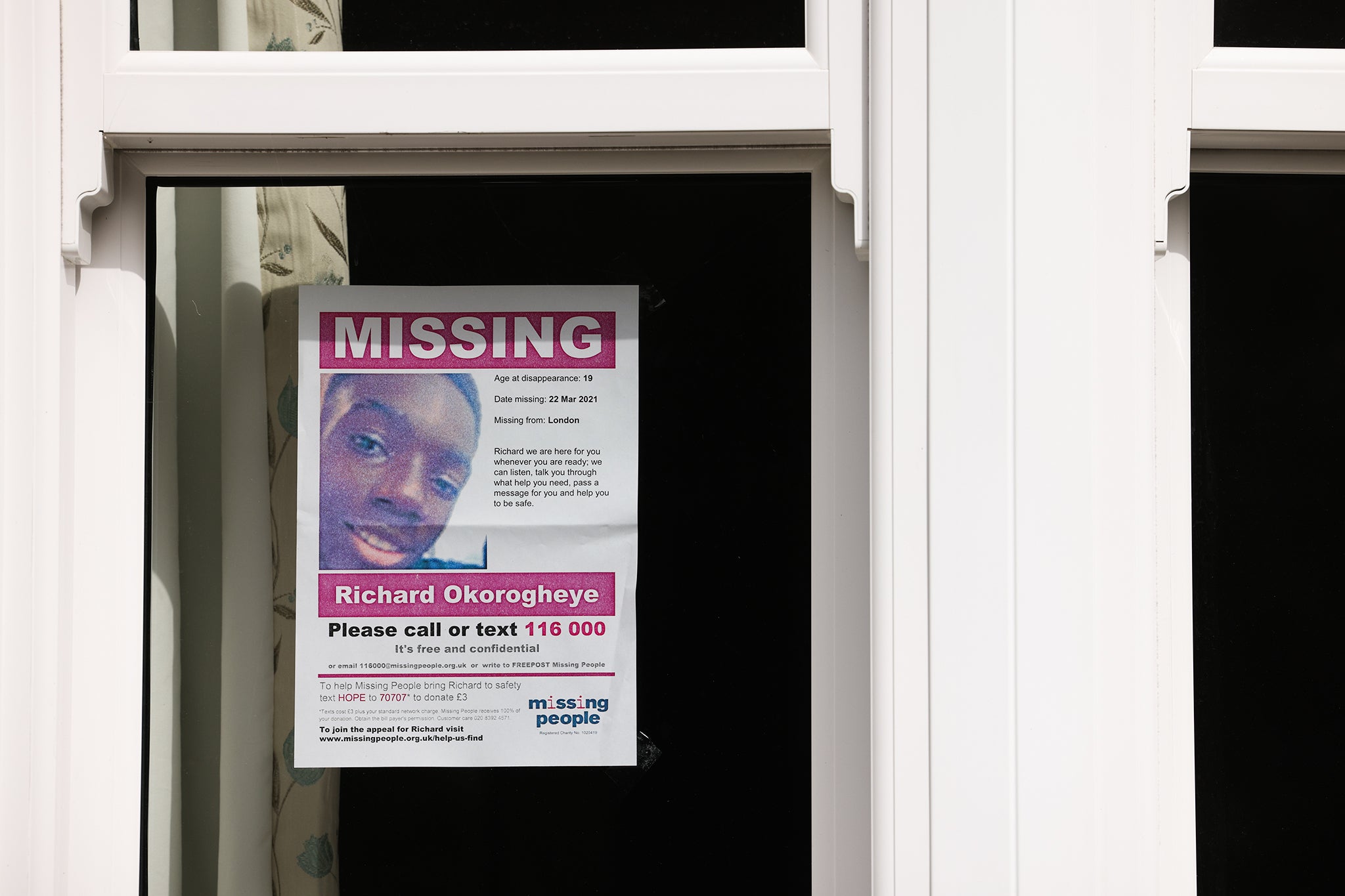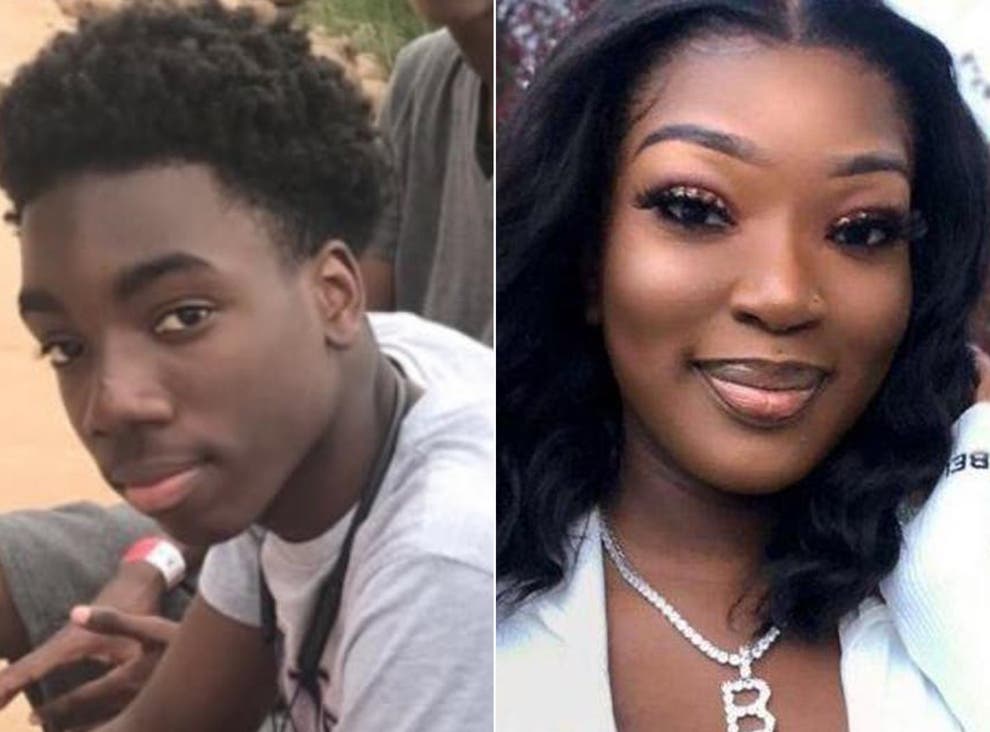‘I was fobbed off’ – Black missing children are being failed by authorities, researchers say
Exclusive: Listen Up, a national research organisation, and the charity Missing People have published a groundbreaking new report highlighting experiences of Black children who have previously gone missing and their loved ones

Your support helps us to tell the story
From reproductive rights to climate change to Big Tech, The Independent is on the ground when the story is developing. Whether it's investigating the financials of Elon Musk's pro-Trump PAC or producing our latest documentary, 'The A Word', which shines a light on the American women fighting for reproductive rights, we know how important it is to parse out the facts from the messaging.
At such a critical moment in US history, we need reporters on the ground. Your donation allows us to keep sending journalists to speak to both sides of the story.
The Independent is trusted by Americans across the entire political spectrum. And unlike many other quality news outlets, we choose not to lock Americans out of our reporting and analysis with paywalls. We believe quality journalism should be available to everyone, paid for by those who can afford it.
Your support makes all the difference.The mother of a missing Black teenager has described how she was “treated like a pest” when she reported her son as missing as a new report warns of systemic negligence around missing people cases.
After several months of regularly going missing, Jen says her 16-year-old son was discovered miles away from home in a house with adults and drugs. The youngster is understood to have been groomed by a gang.
These revelations come as a new report led by Listen Up, a national research organisation with support from the charity Missing People, highlights insights from Black children who have previously gone missing and their loved ones.
Black children are disproportionately likely to go missing, with 16 per cent of all missing children across England and Wales being Black, compared to their 4 per cent proportion of the general population.
The study reveals that Black children and young people are at increased risk of going missing and being undersupported across government and state agencies because of discrimination.
Their experiences of racism and indifference are one of many issues which drive them to go missing more often and to feel uncared for, the study, first seen by The Independent, highlights.
The report, entitled “Experiences of Black missing children and their parents”, recommends better media reporting around cases of missing Black people and better work by authorities to safeguard and support young people and their families.
Speaking with The Independent, Jen said her repeated approaches to the police when this first started to happen in 2012 resulted in her being “fobbed off”, “treated like a pest” and told that her son is “probably out with friends”, even after she explained that the disappearances were totally out of character.
“This is about Black kids going missing, and how it’s treated very differently by the authorities,” Jen continued.
“I would like it to be highlighted in the same way as the Post Office scandal, so the issue becomes a priority across the government and the media, and there’s an understanding that this isn’t a small thing.
“Kids’ lives have been turned upside down and many are Black or from an ethnic minority. Yet, they’re not being treated the same way as white children who have gone missing.”
Jen says her son is now serving a long prison sentence after being groomed into drug dealing.
“This needs to be addressed and people with historic cases, like myself, should have the opportunity for review.
“If my son’s disappearances were taken seriously and were helped, I don’t believe for one second that we’d be in this situation now.”

“For the first time, we gain insights into the unique challenges faced by Black children when they go missing,” Jahnine Davis, co-founder and director of Listen Up, said.
“This report highlights key themes: Black children are devalued and overlooked, media reporting is poor, racism impacts trust, and home circumstances can act as a push factor – all demanding urgent attention.
“A painful truth has emerged; vulnerability is a privilege for Black children. Their appeals for help receive unequal attention, leaving them more vulnerable.”
Ms Davis added: “When Black parents report their children missing, systemic biases compounded by racial stereotypes affect professional judgment.
“This research underscores the urgent need to dismantle these barriers and ensure equitable support for every family, regardless of race. Importantly, it sheds light on an overlooked area and provides a critical foundation for change.”
The Independent has previously reported on campaigners’ call for the government to ramp up its response to the disproportionately high number of Black people going missing – and the lack of action around this.
It has been noted that cases of missing Black people from Levi Davis and Blessing Olusegun to Bibaa Henry and Nicole Smallman saw less initial media coverage and police response than other cases involving missing white people.
Evidence Joel, the mother of teenager Richard Okorogheye, said the police treated her as a nuisance when she reported him missing in 2021.
Chief executive of Missing People, Jo Youle, said: “This research is deeply concerning. We already know from statistics that Black children are facing greater risks when they are away, staying missing for longer and their vulnerability is often unrecognised.
“Hearing directly from Black young people about feeling unseen, unheard, and unvalued is a painful wake-up call for all professionals responding to missing children. We must now focus on improving support for Black children and their families.
“We need to support children so they don’t feel that going missing is their only option, and ensure they get meaningful help if they do, including better understanding how racism has an impact on their life.”
Join our commenting forum
Join thought-provoking conversations, follow other Independent readers and see their replies
Comments